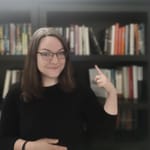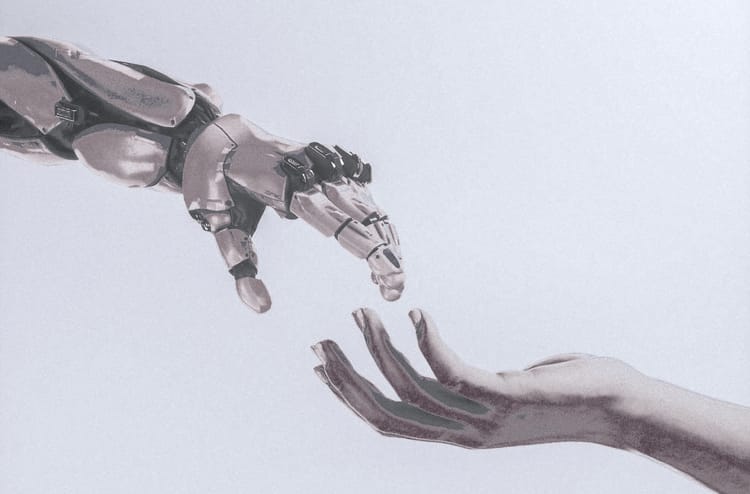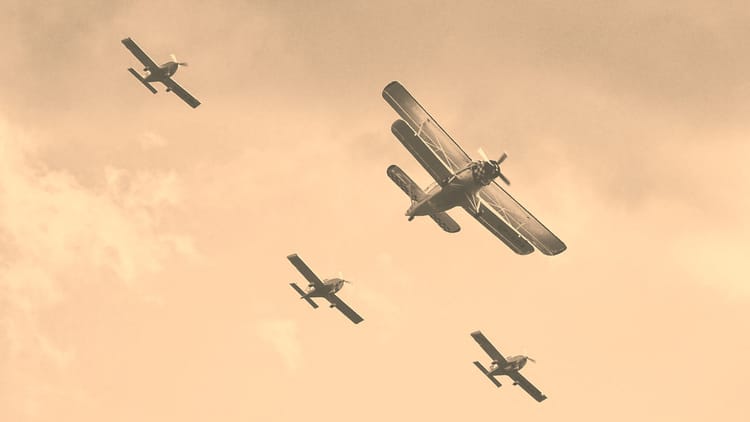Jubilee Paris Listens to the Stars
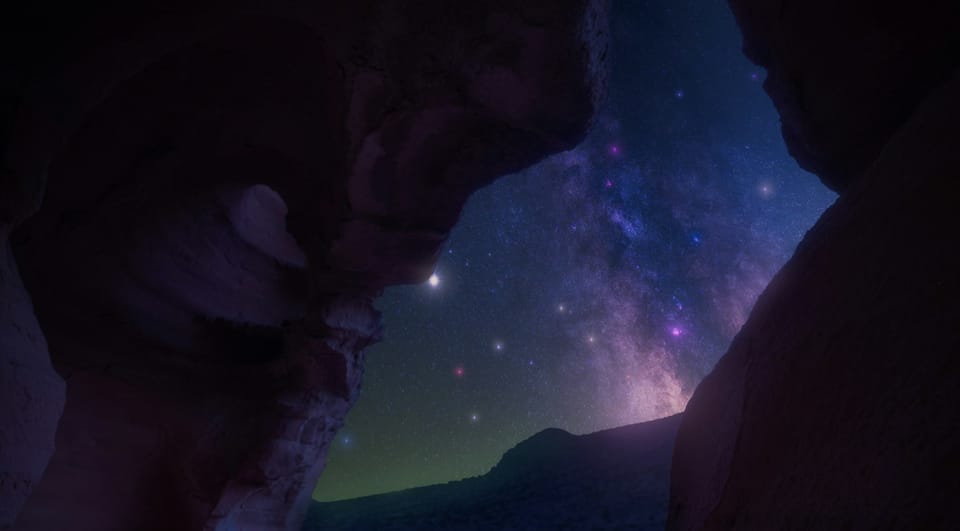
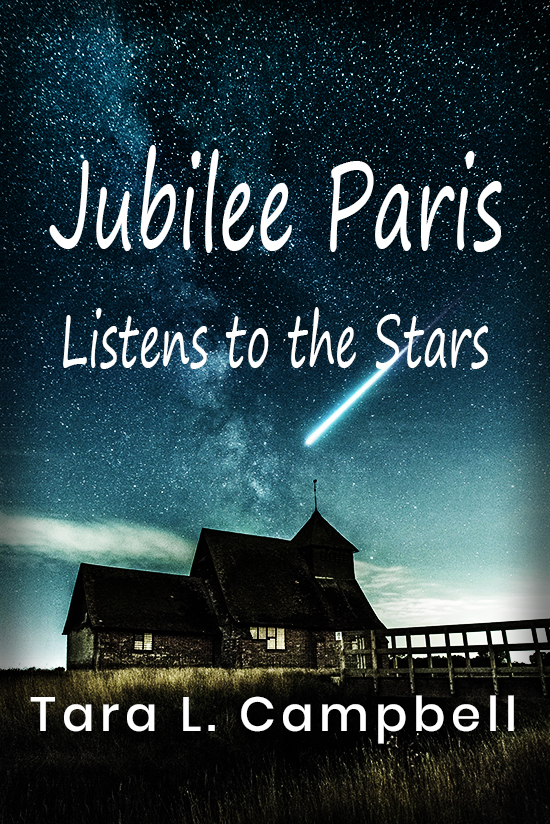
Jubilee Paris Listens to the Stars
By Tara L. Campbell
🙑
My 97-year-old great grandmother Jubilee Paris dropped two seed packets on the kitchen table and declared: “Gracie, it’s time to go listen for your great granddad.” I was eight years old but I knew communicating with my great granddad was out of the question. He’d been dead longer than I’d been alive. What seeds had to do with the task, I had no clue.
Still, the prospect of communicating with the dead was too much to pass up. I scooped up the seed packets and followed my great grandmother, Gran-J as I called her, out the back door. A wide porch wrapped around the old farmhouse and we made our way to the ramp my uncle had installed for her motorized scooter. I hurried alongside her, struggling to keep up, as Gran-J headed for the garden.
🙑
Jubilee grew up in a midwestern farming family, the youngest of six. She worked alongside her siblings to keep the large corn farm in business until they were old enough to go their separate ways out into the world.
No matter what she did, Jubilee did it with fire. And it was that same burst of carefree energy that caught the eye of a quiet young botanist at university.
From the moment she’d entered the campus garden to rearrange some of the potted plants—she had her own ideas about synergistic arrangements of flora life—John Paris was taken in with Jubilee. She was studying language arts while John was doggedly focused on the biological processes of plant life. Polar opposites but an endearing match nonetheless.
John and Jubilee were married just a year after they’d graduated from university with their respective undergraduate degrees.
“Gran-J,” I said when we’d reached the old wooden fence that surrounded the garden. Ancient vines of wisteria and sweet peas encased most of the fence so that if any of it were removed, the whole thing would have disintegrated. “How are we going to hear Great Granddad John from the garden?”
Gran-J smiled wide and offered a conspiratorial wink. She edged her scooter through the open gate, careful to stay on the path that was just wide enough for the wheels to follow. “You’ll see, Gracie. You’ll see.”
I didn’t know what to think but shrugged and followed along. My mom said we moved in to take care of Gran-J which meant doing things her way, even if it seemed silly. Old people were particular, mom had said, and it wasn’t worth making them upset when they were so close to the end of life.
🙑
John and Jubilee moved frequently for the first few years they were together, taking up residence wherever his PhD studies and fellowship programs took them. Eventually John settled into teaching full time at a university, and he and Jubilee bought a small farm a little over twenty miles away. There, John worked in the evenings and on weekends with Jubilee while she ran things on the farm for the most part. They had one daughter, my Grammy Kate, who grew up roaming wild and free with neighboring friends. The farm brought in enough income alongside John’s tenure to make a decent living for the family.
On the farm, they kept one plot reserved for the family garden. At first, John insisted on precise and careful organization of his plants—important for research and studies, he would say. Jubilee, though, she still had her own ideas about plant life arrangement. After a few seasons of grumblings, John gave up chasing away Jubilee’s plants and left them to grow in disorganized clusters that infiltrated his own researched plant layouts.
For years they carried on that way, adding their daughter Kate’s own botanical artistry which included a tiny stream that wound throughout the garden with whimsical abandon. The family called the garden their special harmony.
“Now, take the seeds, the white packet with the yellow flowers—those are Black-eyed Susans,” Gran-J nodded when I held up the correct packet. “See that small gray stone circle? Yes, that’s it, go plant five of the seeds. Make a ring inside the stones, and keep them evenly spaced.”
I did as instructed, poking my small finger about halfway down into the dirt the way mom had shown me when we’d started seeds in the garage the year before. I wasn’t sure if Gran-J meant for me to do the same, but she didn’t seem to mind. She smiled warmly, watching me work.
Grammy Kate’s spring bubbled in the background, wandering over a pebbled bed, and disappearing under a tiny foot bridge. The bridge didn’t look sturdy enough to hold Gran-J’s scooter, but I didn’t say anything. Mom said it’s better not to bring up what Gran-J couldn’t do anymore.
The Black-eyed Susans planted, a sprinkle of water, and Gran-J moved me on to the next neat cluster of rocks. This time I planted purple coneflowers, but again, in the same five-round pattern.
“That’s how your great granddad always did it, you know.” Gran-J looked off over the garden, the spring life waking to the warm sunshine. “He’d have his perfectly laid out circles that just begged for a cozying up with variety. Here,” her ancient, withered hand shook as she held out a third packet of seeds. “Rough up the dirt between and around the stone circles, then sprinkle these all about.”
I broke up the topsoil and carefully sprinkled a few seeds, looking back at Gran-J for assurance. “That’s it, give it a good couple shakes to mix them all up. Don’t forget to cover the seeds and water them.”
🙑
By the time John was 65, he had gone completely blind. Most of the farm was taken care of by hired help, and well-sustained by a rising demand from the locally-grown foods movement. Still, after years of teaching, the loss of his eyesight was also the end of his academic career. John turned to his botany, finding new, creative, ways to perform his research.
One day in the garden with Jubilee, John asked if she heard what he had: a low series of hums and clicks and pops. It sounded like nothing he’d heard before, and he struggled to explain what he was hearing. Jubilee hadn’t noticed but she suggested he bring it up at his next doctor’s appointment.
John’s doctor dismissed it as auditory hallucinations, likely brought on by the shift in sensory demand from the sudden loss of his eyesight. Auditory processing did not improve with age, the doctor stated, it deteriorated.
Shortly after that, while Jubilee was tending the young sprouts of her latest wildflower varieties, she caught a pulsing sensation in the soil, a barely perceptible pressure that she had to wait out several heartbeats to detect again. She called John over, giving him time to make his way with the new white stick he was learning to use. Sure enough, the sounds he heard—he hummed and clicked for Jubilee to compare—matched the rhythms she felt in the soil.
The pair researched all the local phenomena that might explain what they were sensing, but nothing matched. Over that summer, they scratched their heads. The freezing temperatures of late fall and winter brought them back indoors, their investigation reduced to academic paper searches—a slow and expensive endeavor—and calls with friends and former colleagues. Everyone had their ideas but nothing fully explained what was happening in John and Jubilee’s garden.
Eventually spring returned and so did John and Jubilee’s quest for answers. Soon the garden was covered with dozens of sensors jutting out of the ground. Jubilee jotted down readings, mindful of the precision John insisted upon. Together they brainstormed all sorts of ideas until three years after the initial detection, they decided to build an amplifier device so that Jubilee could hear what John heard.
“Come Gracie, I want to show you something,” Gran-J motioned for me to follow. An old shed that sat halfway between the farmhouse and the garden was her destination. I scrambled after her as she raced up the gravel path. The scooter was remarkably nimble.
Gran-J stopped to let me go first: the double doors on the shed were secured by an old-fashion styled wooden slat. The slat was heavy, but I eventually lifted it from the iron hooks on the doors. Gran-J, though, wouldn’t have managed on her own.
No one had been in the shed for a long time. The heavy canvas drop cloths were covered in a thick layer of dust. Gran-J crept in, carefully nudging the scooter forward a tap at a time until she reached the table she had set her eyes on.
“Here we go, this one,” she tugged at the corner of the canvas cloth. “The receiver is under here.”
I didn’t know what a receiver was but I helped her peel the covering back out of the way. Underneath was a strange old radio that looked part wood framed classic player, and part mechanical Frankenstein with electrodes, dials, and coils popping off in every direction. I stared at the monstrous device then looked over at Gran-J; her face was alight. Clearly the device was something she had missed.
“Now we’re going to listen for John,” she whispered, reaching out with a trembling hand to the device.
🙑
John and Jubilee enjoyed hours of listening on the radio to the sounds their unique planting configurations produced. The garden harmony project grew into a collaborative obsession.
The couple’s daughter Kate went on to have a professional career as a ballet dancer, and later, opened her own dance studio. She had three children who spent their summers on the farm with their grandparents, exercising the same wild freedom she had growing up. Over time, Kate and her children watched the aging pair and their endless fascination with the garden and the receiver in the shed, but no one ever interfered. Kate figured it was a harmless hobby that kept her aging parents sufficiently stimulated.
“Listen close, Gracie,” Gran-J said as she handed me the oldest headset in the world. Carefully, afraid they might fall apart in my hands, I put them over my ears and waited.
Gran-J flipped a switch and a soft yellow glow illuminated the faded white dial page. Tiny lines with occasional numbers were made visible, and I heard my first radio wave signal.
In a digitized world, I had no idea what radio signals were, much less what they sounded like. I stared in wonder at Gran-J.
“Quite an earful, eh?” She said with a grin.
“What is it?” I shouted.
Gran-J laughed and motioned for me to take off the headset.
“That’s the sound of radio waves. The static is a whole lot of background radiation that we can’t see, but it’s always there.”
“Radiation?” I asked, the word foreign and ominous.
Gran-J nodded. “Don’t worry, there’s all kinds of radiation in the world. Most won’t hurt you, though. Your Great Granddad John said life wouldn’t have gotten very far here on Earth if it did.”
Cautiously, I put the headphones back on and listened to the static. After a few seconds, Gran-J turned the dial ever so slowly, watching me as she did so. The sudden squall and screech caused me to jump. She giggled and said, “Sorry, kiddo. Here,” she held out her hand for the headphones. “Let me find the frequency, it’ll be easier if I can listen for it.”
I passed the headphones back and watched as Gran-J leaned in close to the radio and turned the knob ever so slowly.
Gran-J inhaled sharply, holding her breath far longer than I thought was safe. Finally she exhaled. “There,” she said in a breathy whisper and handed the headphones back to me. I put them on and heard a strange series of hums and clicks and pops.
“What is that?” I said, pulling back one of the ear coverings so I could hear her answer.
Gran-J hummed and clicked the same sound I was hearing in the headset. Within a few moments she had the timing and the rhythm matched with what was playing in my ear, even though she couldn’t hear while I had the headphones on.
“That’s your Great Granddad John. He’s out there on the other side, talking to us as if he were standing right here in this shed.”
I listened closely, confused but fascinated. Gran-J smiled with her eyes closed, continuing her humming and clicking tune.
🙑
At the observatory, I started my first full night alone listening to the stars. I’d earned my PhD in radio astronomy and I was there to hear what the cosmos had to say.
Mom called to congratulate me, and to let me know that she’d moved the “dilapidated contraption” to my apartment’s kitchen table as requested. I still wasn’t happy about the sale of the farm. Why couldn’t it just hang about the family a little longer until one of us great grandkids were able to do something with it? But mom had her siblings to contend with and they’d decided to sell the farm in a two-to-one vote. None of them understood how impossible it is today to get our hands on quality farmland at a reasonable price. Nothing anywhere close to what my great grandparents had anyway.
After a long night of collecting the sounds of the universe, there was still something about Gran-J and Great Granddad John’s monstrous radio that drew me in when I arrived home. The ancient headphones had been lost, but as a bonafide audiophile, I put together a few connectors that modified my modern pair to work with the radio. I plugged in the power—glancing at the smoke detector down the short hall of my apartment in case the old thing caught fire—and smiled at the familiar buzz of radio waves playing in my ears. I fiddled with the dial, experimenting with the tones that squirreled and squawked. A few times a rattle of someone talking was heard, but otherwise it was mostly radio static.
A small red line appeared on the dial, this one different from the printed lines and numbers. I didn’t recall seeing it before in the shed with Gran-J, but that was nearly twenty years before. The handwritten scribble above the line was illegible. Still, the red line was clear enough. I smiled at the memory of Gran-J telling me excitedly about hearing Great Granddad John on the receiver, years after he’d passed away. Mom had sighed that day when I told her about the garden and the radio.
“That old business again. Gracie,” she’d said, sitting down with me in her lap. “Gran-J is very old and sometimes when people get to that age, what seems real to them isn’t quite the same to us.”
She had assured me that Great Granddad John wasn’t talking from the grave, and certainly not from the garden. Gran-J was remembering how she and Great Granddad John used to listen to the sounds of their plants firing little waves back and forth to communicate. The signals were detected by the sensors placed throughout the garden and transmitted through the radio in the shed. There was nothing supernatural going on.
“She’s just reliving the best times of her life, and missing your Great Granddad John, that’s all.”
The radio was now far from the garden and the sensors, but for old time’s sake, and because Gran-J would have been delighted, I turned the dial to the red line she’d marked.
A deep hum and a series of clicks and pops rang out in my headset, clear as if they’d been made right there in my apartment.
🙑
Six months later, with funding secured, I was on my way to an observatory in Mexico. The telemetry of the radio waves detected on my great grandparents’ radio had pinpointed a repeating signal from a galaxy more than a million light years away. Gran-J had marked the frequency to hear Great Granddad John on that old radio, but what it was aligned to was something far beyond their garden. My great grandmother Jubilee Paris had been listening to the stars.
Jubilee Paris Listens to the Stars
Copyright © Tara L. Campbell
All rights reserved.
No parts of this publication may be reproduced, stored in a retrieval system, or transmitted in any form or by any means, electronic, mechanical, photocopying, recording, or otherwise, without the prior written permission of the copyright owner.
This is a work of fiction. Any similarity between the characters and situations within its pages and places or persons, living or dead, is unintentional and co-incidental.
Cover & Typesetting by Tara L. Campbell
